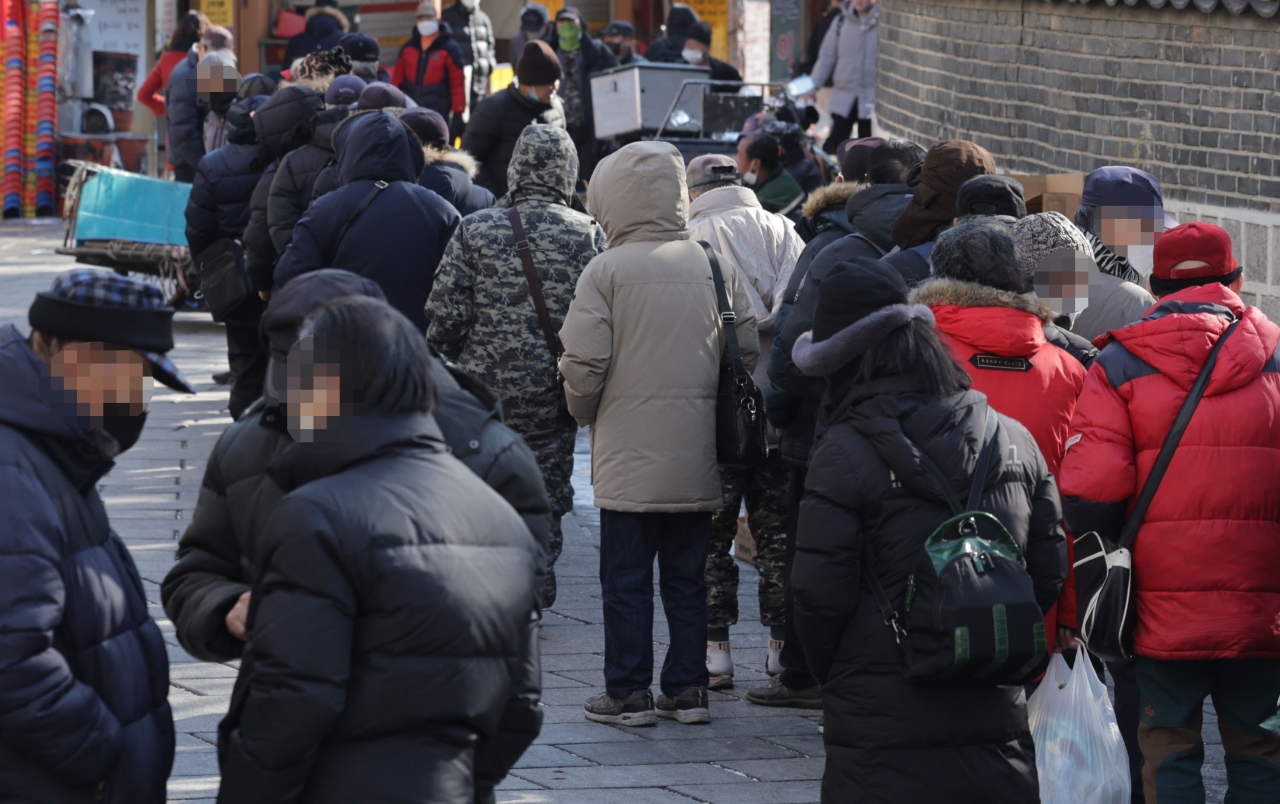Aging population to slow down economy, central bank warns
By Im Eun-byelPublished : Jan. 2, 2023 - 15:33

The Bank of Korea warned Monday that the aging population could drive down the macroeconomic benefits of fiscal expenditure.
According to the central bank's monthly research report, studies show that one percentage point in an increased aging population leads to a 5.9 percent drop in the fiscal growth of gross domestic product.
The bank announced the figures based on overseas research which showed that the change in the population structure weakens the growth effect of fiscal expenditures.
As Korea becomes an aging society, the multiplier effects of government spending on the domestic economy will decrease by between 14.8 percent and 16 percent in 2025, compared to last year.
The result is similar to a previous study held with the Organization for Economic Cooperation and Development countries which showed that the increase of an aging population will lead to a drop in labor supply, deterioration in the quality of employment and slowdown in consumption propensity, which are major hurdles for the growth effects of fiscal expenditure.
The BOK viewed the labor supply in Korea has been on a decrease, while the quality of employment for the elderly has been deteriorating and the overall consumption propensity has slowed.
Korea is becoming an aging society at a fast rate. It is expected it will become a super-aging society by 2025 where more than 20 percent of the total population is aged 65 years and older.
In 2021, the country’s birthrate dropped to 0.81 percent. Those aged over 65 take up 16.7 percent of the total population, showing a sharp increase from 6.9 percent in 2000. The elderly population is expected to reach 20 percent in 2025.
Furthermore, elderly south Koreans spend less than other age groups, showing a decline in consumption. The propensity to consume decreases sharply for those aged over 50, as financial concerns about life after retirement grows, the central bank explained.
“As the population structure is expected to change drastically, it is possible that the growth effect of fiscal expenditure could weaken at a fast speed,” Lee Jae-ho from the Research Department at the Bank of Korea said.
“As the government’s fiscal burden is expected to enlarge with the increase of welfare spending, the growth effect of fiscal expenditure will decrease. It is important to secure the fiscal space from mid- and long-term perspectives,” Lee said.



















![[Today’s K-pop] Treasure to publish magazine for debut anniversary](http://res.heraldm.com/phpwas/restmb_idxmake.php?idx=642&simg=/content/image/2024/07/26/20240726050551_0.jpg&u=)